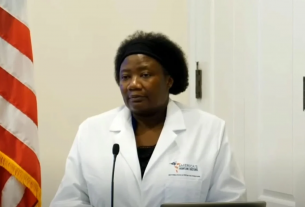
Hebrew University Researchers Make Breakthrough On Sugar Substitutes
Current sweeteners either taste artificial or might cause health problems.
Scientists from the Hebrew University in Jerusalem may have come up with a plan for a realistic alternative to sugar.
Everybody wants to be able to eat whatever they want without the consequences. Calories free sweets that really do taste like the real thing and are sugar-free.
With increases in the rate of diabetes in the west due to poor diets and the increasing consumption of junk food the development of a tasteful and healthy sugar alternative is more important than ever.
And the problem is not just a lack of will power or eating smaller portions. Consumers do not always know about the added sugar in what they eat. Fast foods from hamburgers to pizza have added sugar. Even products which say that they have no added sugar may still have natural sugars like fructose from fruit.
All of the current sugar alternatives come with one problem or another. The first is taste. People do not generally enjoy the taste of products made with sugar substitutes.
The second problem is with health. Some sugar substitutes may have long term detrimental health effects. Others may actually cause you to eat more because they leave the body craving actual carbs.
So what can we do?
Dr. Amiram Goldblum is a Professor Emeritus of Computational Medicinal Chemistry at the Hebrew University of Jerusalem School of Pharmacy – Institute for Drug Research. His algorithm, Iterative Stochastic Elimination (ISE), may be used to find sugar substitutes.
Professor Goldblum explained, “By identifying molecules that resemble sugar’s sweet taste but without its negative and dangerous impact on our health, I hope to both offer consumers a better product, while also contribute to the reduction of diabetes worldwide.”
We can taste sweetness thanks to the presence of TAS1R2/TAS1R3 proteins in our bodies, mostly on our tongue and mouth. A similar protein transmits the umami (savory) flavors, and it is entirely possible that sugar and sugar substitutes also transmit their effect through these receptors.
In addition, twenty different proteins can sense bitter tastes, and it is assumed that some of them may cause the bitter aftertaste associated with substitute sugars, despite the different structures of the “bitter taste” proteins.
To solve this problem, Prof. Goldblum has constructed computational models that are capable of distinguishing between sweet, umami, and bitter tastes, and then screens millions of commercially available molecules through these models,, searching for those that will affect the sweet receptor alone (and not the bitter receptors).
So if this research is successful we may have an effective sugar substitute; one which only affects the tongue’s receptors for sweet.
Read more about: sugar, Sweeteners








